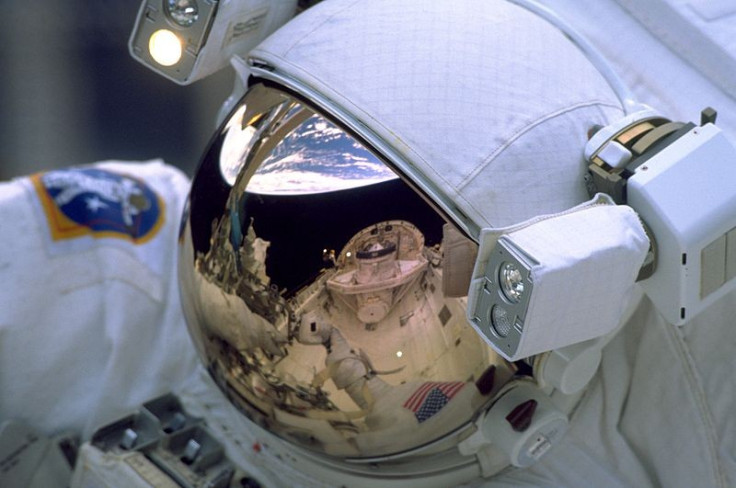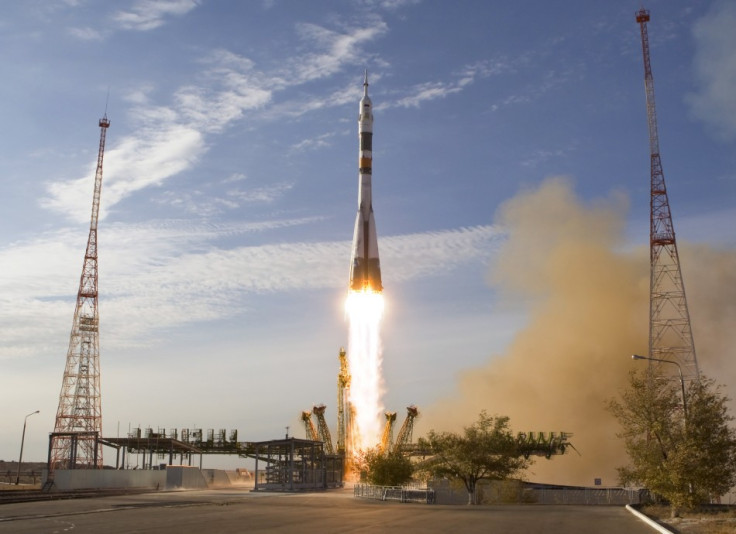Space Sex Can Cause Cancer and Alzheimer’s

Sex in space may distract astronauts from work and make one-night stands a bit awkward - but it may also have long-term health consequences, researchers have warned.
Scientists at the University of Montreal have found that changes in gravity may have an adverse effect on the reproductive process in plants.
For humans, the researchers say space sex could cause cancer and Alzheimer's.
All life on Earth has adapted to reproduce with the gravitational forces found on our planet, they said.
It moderates traffic on cellular "highways" that ensures growth and functionality of the male reproductive organ in plants - the pollen tube.
Anja Geitmann, one of the study authors, said: "Just like during human reproduction, the sperm cells in plants are delivered to the egg by a cylindrical tool.
"Unlike the delivery tool in animals, the device used during plant sex consists of a single cell, and only two sperm cells are discharged during each delivery event,

"Our findings offer new insight into how life evolved on Earth and are significant with regards to human health, as a traffic jam on these highways that also exist in human cells can cause cancer and illnesses such as Alzheimer's.
"Researchers already knew that humans, animals and plants have evolved in response to Earth's gravity, and that they are able to sense it.
"What we are still discovering is how the processes occurring within the cells of the human and plant bodies are affected by the more intense gravity, or hypergravity, that would be found on a large planet, or the microgravity that resembles the conditions on a space craft."
Researchers observed the plants to see how they responded to the new gravitational conditions and found traffic flow was compromised. Cellular growth was disrupted from being in space, they concluded.
"Our findings have implications for human health as similar effects are likely to occur in human cells such as neurons where long distance intracellular transport is crucial."
Nasa is currently preparing to send humans to Mars to set up a colony and live there. They plan to add more people to the colony every two years from 2023 until it is self-sustaining.
Sex in Space Facts
The first animal to reproduce in space was a cockroach called Hope, which gave birth to 33 baby roaches in 2007. Scientists said they were eating and drinking well after being born, but their exoskeletons darkened faster than normal.
In 2011, Nasa radiation biophysicist Tore Straume said radiation levels in space mean any female conceived in space would be left sterile. Tests on non-human primates found low doses of radiation are enough to kill egg cells in a female foetus.
According to the Guardian, in 2000, US and Russian astronauts had sex in space for research programmes looking at how humans might survive away from Earth for years at a time. The author of the book Pierre Kohler said the experiments were top secret. Nasa dismissed his claims, saying it was nothing but an "urban myth".
The same author said Nasa tested 20 sex positions by computer simulation on a 1996 shuttle mission. He said they found only four positions that were physically possible without mechanical assistance.
Porn star Coco Brown is due to be the first adult film actress in space after paying £64,000 to take part of a private Dutch mission in 2014. She said she will not be having sex in space but said she might try to take some erotic shots with Earth in the background.
© Copyright IBTimes 2025. All rights reserved.






















